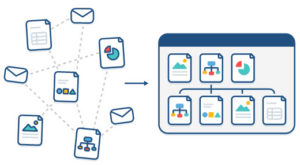
Mind maps enable your teams to visually organize information and capture it in context, starting with a central idea before collaboratively building out from it. Confluence makes it easy, letting you use plugins to build mind maps into your team’s platform.
Popular mind mapping plugins for Confluence include:
Keep reading to learn how your teams can use mind maps to boost their productivity:
1. Brainstorm Important Ideas
It all starts with an idea, whether a new feature for development teams or a creative campaign for the marketing department. Mind maps let teams flexibly explore key concepts, risks, and requirements for each project.
Did someone miss a brainstorming session? You can save your progress to give team members access to the most up-to-date information, making it easier to follow up and keep track.
2. Plan the Project – Including Scope
After coming up with some mutually agreed upon targets, your teams can map out key features including:
- Contributions from each team member.
- The resources they’ll need.
- The outcomes expected.
Teams can also grapple with the scope of the project by organizing assumptions, deliverables, limitations, boundaries, and more.
3. Visualize Your Meeting Notes
A lot of meetings to fine-tune details can mean a lot of notes. Mind maps help you stay focused on the important things, highlighting key points and grouping action items.
4. Capture Non-Linear Thoughts
Ideas often flow freely during brainstorming sessions – especially at early-stage meetings.
With a mind map, you can:
- Document tangents of conversations as nodes.
- Take notes on corresponding nodes during conversations.
Managing notes in a digital mind map makes them easier to track, update, and share compared to relying on paper and pens – helping your teams get more done and maximize their productivity.
Need a custom Atlassian Hosting Solution? Start Here. Elasity is the most flexible, secure Atlassian cloud hosting platform in the world – letting you run your Atlassian applications, add-ons, and integrations behind your firewall on AWS.
- 3 Reasons You Need Atlassian Data Center - February 26, 2019
- Atlassian’s 5-Step Guide to Creating an Incident Communication Plan - November 14, 2018
- 4 Tips to Maximize DevOps Success While Ensuring Regulatory Compliance - September 5, 2018

